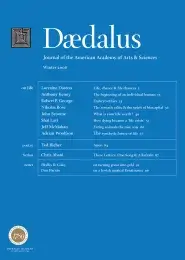The value of life: somatic ethics & the spirit of biocapital
What is the value of life?1 This may seem a pretentious or a philosophical question. But it is the subject of much contemporary discussion. In August 2006, England’s National Institute for Clinical Excellence (NICE), which advises on medicines available on the National Heath Service (NHS) in England, ruled against two treatments for late-stage bowel cancer–Genentech’s Avastin and ImClone Systems’ Erbitux. Although these treatments were widely available in a number of countries, nice declared that their use was not “compatible with the best use of NHS resources.”
NICE estimated that treatment with Avastin would cost £17,665.65 a patient, Erbitux £11,739. On average, these treatments extend the lives of those with terminal bowel cancer by five months. nice made its judgment using a model that estimates the costs per ‘quality adjusted life year’ (QALY) gained, and set a ‘willingness to pay’ cap of £30,000 per QALY. Each of the treatments exceeded that limit. Many cancers sufferers and their supporters contested this decision. It was, they said, a question of the value placed on their lives, the value of five months of life.
What, then, is the value of life? A Google search for ‘the value of life’ turns up 417,000 pages in 0.22 seconds. Among them, Brainy Quote of the Day gives us Michael de Montaigne’s wise words: “The value of life lies not in the length of days, but in the use we make of them.” But more generally, what one sees in these pages is an instructive intertwining of the ethical and the economic. Of course, many of the Google hits lead to the deliberations of bioethicists; in fact, The Value of Life is the title of a book by the prominent British bioethicist John Harris. But for those of us who are not bioethicists, current debates over the value of life provide one way to explore the nature of contemporary biopolitics.
. . .
